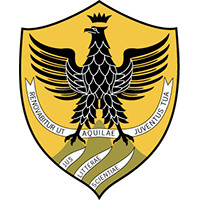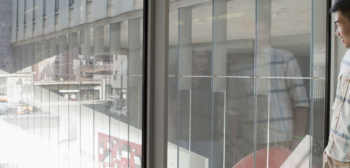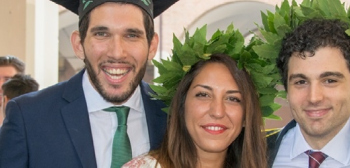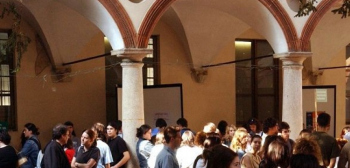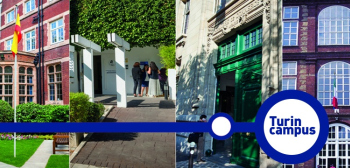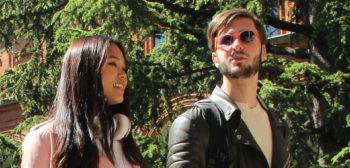Universita' degli Studi dell'Aquila
About
Established in 1952, on the vestiges of Aquilanum Collegium dating back to 1464, the University of L’Aquila is a public teaching and research institution offering a full range of academic programmes including Biotechnologies, Sciences, Economics, Engineering, Education, Humanities, Medicine, Psychology, and Sport Sciences. With 7 Departments, the University of L’Aquila offers its about 19,000 enrolled students a wide array of first, second cycle and Postgraduate programmes.
The University of L’Aquila is constantly working to develop its international dimension, establishing and developing networks and partnerships that guarantee the opportunity of cooperation with regard to education, research and relations with industry. Students are encouraged to become global professionals stimulating and supporting future graduates to have learning and working experiences abroad in the framework of more than 400 agreements with institutions from all over the world.
University of L’Aquila is a Research University committed to be a full member of the European Higher Education Area. Thus the two functions of teaching and developing scientific research are strongly interlocked. The University includes also a Medical School where these two functions are connected with the provision of Health services in the territory.
Teaching is organized according to the Bologna Declaration requirements and presently the university offers 30 1stcycle degrees, 31 2nd cycle degrees, 4 single cycle degrees, 10 PhD programmes, in the fields of Sciences (Mathematics, Physics, Chemistry, Biology, Natural and Environmental Sciences), Health (Medicine, Dentistry and several Health Alliance specialties), Psychology, Education, Humanities (including languages and Communication) and Economy.
Inclusiveness and equal opportunities are granted by targeted services.
Research is the other key function that is carried out in 7 Departments and 7 Research Centers Among them the excellence research Centers CETEMPS, where studies on climate changes are carried out at very high level and DEWS, where the disruptive technology of IoT and AI is studied in cooperation with many European and International Universities and Research Institutions.
Policies for quality assurance in teaching and research yielded positive results as highlighted in surveys showing that UNIVAQ graduate employment rate after one year and three years from the diploma is higher than the national average, and the increasing number of patents and spin-off.
The University is also playing its role of Civic University, providing expertise in planning policies on the most important topics of local governance. This is particularly important in the present phase of the reconstruction of the City after the destroying earthquake on 2009. New materials for the restoration and new methods for monitoring the monuments (L’Aquila is the 6th art city in Italy), agreements with companies, experimentation of 5G technology (L’Aquila is one of the 5 cities selected for experimentation in Italy) are the research actions fundamental for the re-establishment of the social and economic fabric of the City. Students are involved in these activities so that they can apply knowledge and research during their learning process. Internationalisation is more a means than a goal, since all the activities are planned and implemented with an international point of view.
About
Established in 1952, on the vestiges of Aquilanum Collegium dating back to 1464, the University of L’Aquila is a public teaching and research institution offering a full range of academic programmes including Biotechnologies, Sciences, Economics, Engineering, Education, Humanities, Medicine, Psychology, and Sport Sciences. With 7 Departments, the University of L’Aquila offers its about 19,000 enrolled students a wide array of first, second cycle and Postgraduate programmes.
The University of L’Aquila is constantly working to develop its international dimension, establishing and developing networks and partnerships that guarantee the opportunity of cooperation with regard to education, research and relations with industry. Students are encouraged to become global professionals stimulating and supporting future graduates to have learning and working experiences abroad in the framework of more than 400 agreements with institutions from all over the world.
University of L’Aquila is a Research University committed to be a full member of the European Higher Education Area. Thus the two functions of teaching and developing scientific research are strongly interlocked. The University includes also a Medical School where these two functions are connected with the provision of Health services in the territory.
Teaching is organized according to the Bologna Declaration requirements and presently the university offers 30 1stcycle degrees, 31 2nd cycle degrees, 4 single cycle degrees, 10 PhD programmes, in the fields of Sciences (Mathematics, Physics, Chemistry, Biology, Natural and Environmental Sciences), Health (Medicine, Dentistry and several Health Alliance specialties), Psychology, Education, Humanities (including languages and Communication) and Economy.
Inclusiveness and equal opportunities are granted by targeted services.
Research is the other key function that is carried out in 7 Departments and 7 Research Centers Among them the excellence research Centers CETEMPS, where studies on climate changes are carried out at very high level and DEWS, where the disruptive technology of IoT and AI is studied in cooperation with many European and International Universities and Research Institutions.
Policies for quality assurance in teaching and research yielded positive results as highlighted in surveys showing that UNIVAQ graduate employment rate after one year and three years from the diploma is higher than the national average, and the increasing number of patents and spin-off.
The University is also playing its role of Civic University, providing expertise in planning policies on the most important topics of local governance. This is particularly important in the present phase of the reconstruction of the City after the destroying earthquake on 2009. New materials for the restoration and new methods for monitoring the monuments (L’Aquila is the 6th art city in Italy), agreements with companies, experimentation of 5G technology (L’Aquila is one of the 5 cities selected for experimentation in Italy) are the research actions fundamental for the re-establishment of the social and economic fabric of the City. Students are involved in these activities so that they can apply knowledge and research during their learning process. Internationalisation is more a means than a goal, since all the activities are planned and implemented with an international point of view.
Campus locations
Campus Centro,
Piazza Santa Margherita, 2 , L'Aquila , Italy , 67100
Campus Coppito,
Via Vetoio 43 , L'Aquila , Italy , 67100
Campus Roio,
Piazzale E. Pontieri , Monteluco di Roio - L'Aquila , Italy , 67100
Similar Universities
Bocconi University
Via Sarfatti 25, Milan
Alma Mater Studiorum - University of Bologna
Via Zamboni, 33, Bologna
=177 QS World University RankingsESCP Business School - Torino
Corso Unione Sovietica, Turin
University of Parma
Strada Dell'Università, 12, Parma
John Cabot University
Via della Lungara 233, Rome
Related content

4 reasons to attend a summer…
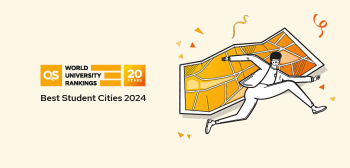
QS Best Student Cities 2024:…

My experience studying a MSc…
Test preparations
Featured University


-
10 UG & 47 PGTotal courses
-
Private for ProfitStatus
-
HighResearch output
